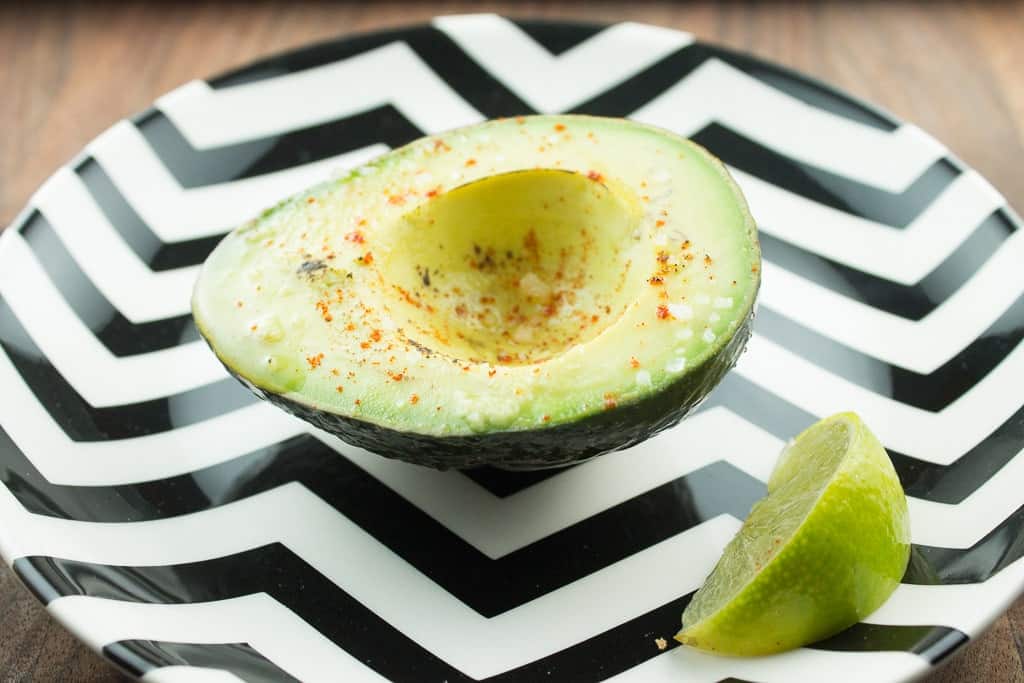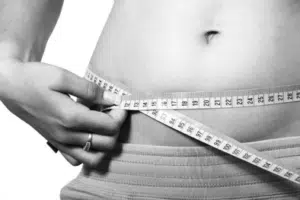Get Started with Keto Meal Plans from Ultimate Meal Plans
It’s safe to say the keto diet has increased in popularity over the years. Many are adopting this regime not just for weight loss but for the substantial benefits it brings to health.

The keto diet bucks the trend when it comes to diets and there is even reason to suggest it works better too.
If you’ve been hearing lots of great things about the keto diet and want to know what it’s all about, I’m going to run through with you the fundamentals to help you build a better understanding; therefore think of this as your guide to the keto diet.
Try out our keto calculator here
What is the Keto Diet?

The keto (or ketogenic) diet is a meal plan which emphasizes heavily on a low carb regime. Cutting out carbs means it’s backed by a high fat and moderate protein intake. The keto diet is said to help you effectively lose weight with health benefits. 1
You may have heard of the Atkins diet. This diet plan follows some of the basic principles of keto at the offset although it gradually introduces more carbs towards the final phases.
So what’s the deal with the keto diet?
In simple terms, the keto diet switches the body’s fuel supply. Reducing your carb intake encourages your body to divert from its conventional source and instead burns fat for energy.
So has this got you wondering how this is all possible? Well, it’s with a little help from a metabolic process called ketosis.
How Does the Keto Diet Work?
There are three variations of the keto diet:
Standard keto diet: this is the most common and involves a continuous routine of very low carb, high fat, and moderate protein intake.
Cyclical keto diet: on this variation, you follow the standard keto diet principles but on certain days you switch to higher carb intakes, this is known as “carb loading.”
Targeted keto diet: this approach involves eating carbs up to one hour before exercise with the theory the carbs get used up through your workout.
For the purpose of this guide, I’m going to concentrate on the standard keto diet as this is the most straightforward to start out on.
When on the keto diet, your daily calorie intake should be split into a 4:1 ratio of macronutrients (fat: protein/carbs) which roughly translates into: 2
- Calories from fat: 70 to 80 percent

- Calories from protein: 15 to 25 percent
- Calories from carbs : 5 to 10 percent
This percent split is a general guide just to give you an idea of what you should be aiming for. It’s worth noting the numbers can vary slightly depending on your weight, activity levels, and your targets.
The keto diet is a little different to other conventional diets where the focus is not so much on counting calories, instead you count net carbs.
“What are net carbs?”
The easiest way to explain is by the following equation:
Net Carbs = Total Carbs – Total Fiber
On the keto diet, your goal is to limit net carbs to 50 grams, or preferably lower, per day to reach ketosis.
Don’t worry if this all sounds overwhelming and complicated. You can find some great apps or nutrition calculators around to help you work out your totals.
Even the USDA has a definitive food database which can help get you started. And it won’t take long for it to become second nature. 3
Make keto easy. Check out our keto calculator.
What Can I Eat on the Keto Diet?
When starting out on the keto diet, it can take a little while to get used to what foods you can and can’t eat. Therefore, it’s always best to plan ahead.

Remember to focus on foods that are high in fat, moderate in protein, but most importantly – low in carbs. To make it a little easier for you, here’s a quick round-up of what keto friendly foods you can go for:
- Meat and poultry
- Fish and seafood
- Eggs
- Full-fat dairy
- Natural fats
- Low-carb veggies
- Nuts and seeds
- Healthy fats/oils
- Some low carb fruits
Meat and Poultry
When opting for meat, you pretty much have the green light on what to choose but grass-fed varieties are the best option. The same applies to poultry as carb content is non-existent.
Fish and Seafood
Fatty fish like salmon, tuna, or mackerel are all good sources of fatty acids, protein and low carbs.
Eggs
Not only are eggs a “go-to” for any dieter, they are also a keto-friendly food you can enjoy.
Full fat Dairy
On a keto diet you need to ditch the low fat yogurts and go full fat. This includes cheese, cream, and butter.
Low Carb Veggies
You have to be careful with your choice of vegetables because some are very high in carbs. Keep to veggies like asparagus, celery, or leafy greens.
Low Carb Fruits
Fruits are another area of caution because many of them contain high levels of sugar. However, there are a few low sugar options – like berries – which are allowed.
Nuts and Seeds
Nuts are a great source of fats, which is why they make the list; however just be cautious which ones you go for. Walnuts, macadamias, and almonds are good choices. Make sure they are in their natural state too and not coated with sugar.
What Can’t I Eat on the Keto Diet?

On the keto diet, there are obviously foods you should avoid like the plague. Step away from anything that contains a lot of sugar or foods that are high in carbs. Here’s a quick rundown of the main offenders:
- Grains
- Legumes and beans
- Starchy veggies
- Processed foods
- Sugary foods
- Soda
- Dried and most fresh fruits
- Alcohol
- Low fat foods
Grains
Anything that’s been made using any type of grain like pasta, rice, bread and even oatmeal is out of the question.
Legumes and Beans
Lentils, chickpeas, and beans need to be banished from the keto diet.
Starchy Veggies
Walk away from starchy vegetables like potatoes, yams, or carrots.
Processed/Packaged Foods
Ditch any food that’s been processed. Hotdogs, chips, or junk foods all fall into this category.
Sugary Foods
Sugar and all things nice don’t cut it on the keto diet. Get rid of candy, desserts, and any baked goods.
Sodas
Cast to the side any type of drink that has high sugar content; this also means fruits juices.
Most Fruits
Most fruit, especially dried fruits like raisins, dates, and banana chips, are not allowed on the keto diet.
Alcohol
Certain alcoholic beverages are laden with sugar, so pass on the cocktails or the beers at the party.
Low Fat Foods
Traditional low fat “diet” foods do not form part of the high fat keto mantra therefore leave well alone.
Benefits of the Keto Diet
The keto diet can provide many benefits to specific health conditions as well as general well being. Here is a long list of reasons why people choose the keto diet: 4 5 6 7 8 9 10 11 12 13 14

- Effective weight loss therapy
- Reduction in appetite
- Increases energy levels
- Encourages less body fat
- Regulates blood sugar levels
- Improves epilepsy
- Reduces sugar cravings
- Lowers cholesterol
- Lowers blood pressure
- Improves and prevents risk from type 2 diabetes
- Improves cognitive behavior
- Reduces migraines
- Improves acne
- Non alcoholic fatty liver disease
- Could reduce risk of Cancer
- Could benefit Parkinson’s Disease
- Improves symptoms of polycystic ovary syndrome
- Improves Alzheimer’s disease
How to tell when you hit Ketosis?
The keto diet is all about finding the sweet spot of ketosis. However, if it’s a biological process going on inside your body, how can you tell that you’ve hit it?
This is where you have two options.
Being in ketosis means the levels of ketones will be higher in your body than normal. Therefore to get an accurate result – a breath, urine, or blood sample will do the trick.
However, option two is a far simpler.
Your body will also give you natural tell tale signs that you are on target:
- Bad breath 15
- Frequent trips to the bathroom
- Increased thirst
- More energy
- Decrease in appetite
There are people out there who let their state of ketosis take over their diet. To be honest it’s nothing to get hung up over and it’s far better to concentrate your efforts on eating the right foods.
Are There Any Side Effects to the Keto Diet?
In most cases, the keto diet is considered a safe way to lose weight and reap the benefits.
However, in spite of all the good things mentioned, it is possible to experience some mild side effects. These may only be temporary while your body adjusts, but it’s worth knowing so that you can prepare yourself just in case.
The most common side effects are:
- Headaches

- Tiredness
- Lack of sleep
- Irritability
- Constipation
- Diarrhea
- Keto breath
- Keto flu
- Dehydration
- Cramps
This is a general list of side effects that most people experience at one time or another. Everyone does react differently, therefore you may not experience all of them.
It’s also worth remembering, most of these can be averted through keeping properly hydrated and ensuring your salt intake is adequate.
Sports Performance on the Keto Diet
As mentioned earlier, at first on the keto diet you will likely see a decrease in performance when it comes to strength and endurance. However, once you have adapted to ketosis and use fat for energy, strength and endurance should return to normal. The key is to be patient, let your body adjust and see how it naturally reacts.
The ability to build muscle will be much more difficult without carbohydrates, but it is still possible. Make sure you keep your protein intake high and that you still eat a surplus of calories. This will require some work but your muscle mass gain should come with less fat gain it would if you were to consume a normal about of carbohydrates.
Research results are mixed when it comes to the true long term effects of the maintenance of a keto diet for strength and performance. Your results will depend on how your body reacts, what you are training for, and how you train. Because glycogen is required for these explosive sports, those who do explosive sports such as weightlifting and sprinting are not likely to benefit as much as the typical gym goer.
To keep things in check, I recommend having a re-feed day every two to four weeks to keep your hormone levels in check and to keep your fuel levels high. Some people (usually naturally lean individuals) can even get away with having a re-feed every week.
Who Should Avoid the Keto Diet?
Most people can adhere to the keto diet without any worries; however in certain circumstances this isn’t always advisable.
For those on any kind of medication, medical advice should be sought before starting the keto diet. This is so you can be sure the diet will not interfere with your current treatment plan
Also, if you have any kind of pre-existing medical conditions, in particular relating to the kidneys or type 1 diabetes, it’s not the best idea. Pregnant or nursing women should also refrain or heavily adapt the keto diet for obvious reasons.
Top Tips for the Keto Diet
To sum up everything here are some top tips to take away for the keto diet:
- Cut back on your carbs – aim for less than 50 grams net carbs or lower
- Focus your foods: first on the fats and protein second – remember 4:1 ratio
- Up your daily water intake (2 to 3 liters) to ensure you remain properly hydrated
- Keep your electrolytes balanced – take a supplement or drink broth
- Get into the habit of checking nutrition labels to work out net carbs
- Keep your foods as real as possible
- Listen to your body, if you feel hungry – eat
- Keep track of your carbs
- Don’t be afraid to eat fat
Who Could Benefit from the Keto Diet?
Judging by the impressive resume the keto diet displays, a number of people could benefit from trying out the regime. The keto diet could be useful for anyone who:
- Wants to lose weight or has obesity
- Suffers from epilepsy
- Has an increased risk of or has diabetes
- Has high blood pressure
- At risk or has high cholesterol
- Has a neurological disorder
- Wants to improve their overall health
Final Thoughts – Is the Keto Diet for You?
Many people choose the keto diet with the intention of losing weight. However, once reaching their goals many continue to stick with the practice simply because, overall, it makes them feel better.
Of course, if you have any one of the conditions above then it’s definitely worthy of consideration.
Granted the keto diet does have its drawbacks in the shape of some short term side effects. And you mustn’t forget if you are someone who really can’t live without carbs or sugar you could find it a tough challenge.
However, at the end of the day it’s what works for you. There’s nothing to say you can’t try it and see what you think.
Free Keto Calculator + Tools
Keeping track of macros on keto can be tough. That’s why we created a free keto calculator you can use to help you stay on track.
Calculate your keto macros in seconds with our keto calculator
Research + Sources
- https://www.ncbi.nlm.nih.gov/pubmed/17332207
- https://www.ncbi.nlm.nih.gov/pmc/articles/PMC2902940/
- https://ndb.nal.usda.gov/ndb/
- https://www.ncbi.nlm.nih.gov/pmc/articles/PMC3826507/
- https://www.ncbi.nlm.nih.gov/pubmed/18700873
- https://www.ncbi.nlm.nih.gov/pubmed/18804129
- https://www.ncbi.nlm.nih.gov/pmc/articles/PMC3620251/
- https://www.ncbi.nlm.nih.gov/pubmed/17448569
- https://www.ncbi.nlm.nih.gov/pmc/articles/PMC4884775/
- https://www.ncbi.nlm.nih.gov/pubmed/17219068
- https://www.ncbi.nlm.nih.gov/pubmed/17999389/
- https://www.ncbi.nlm.nih.gov/pmc/articles/PMC4215472/
- https://www.ncbi.nlm.nih.gov/pmc/articles/PMC3826507/
- https://www.ncbi.nlm.nih.gov/pubmed/16359551
- https://www.ncbi.nlm.nih.gov/pubmed/12081817
This is our ultimate guide to the keto diet. Check out our other installments on keto here:
- What Does Keto Mean?
- The Benefits and Side Effects Of The Keto Diet
- Best Foods To Eat On The Keto Diet